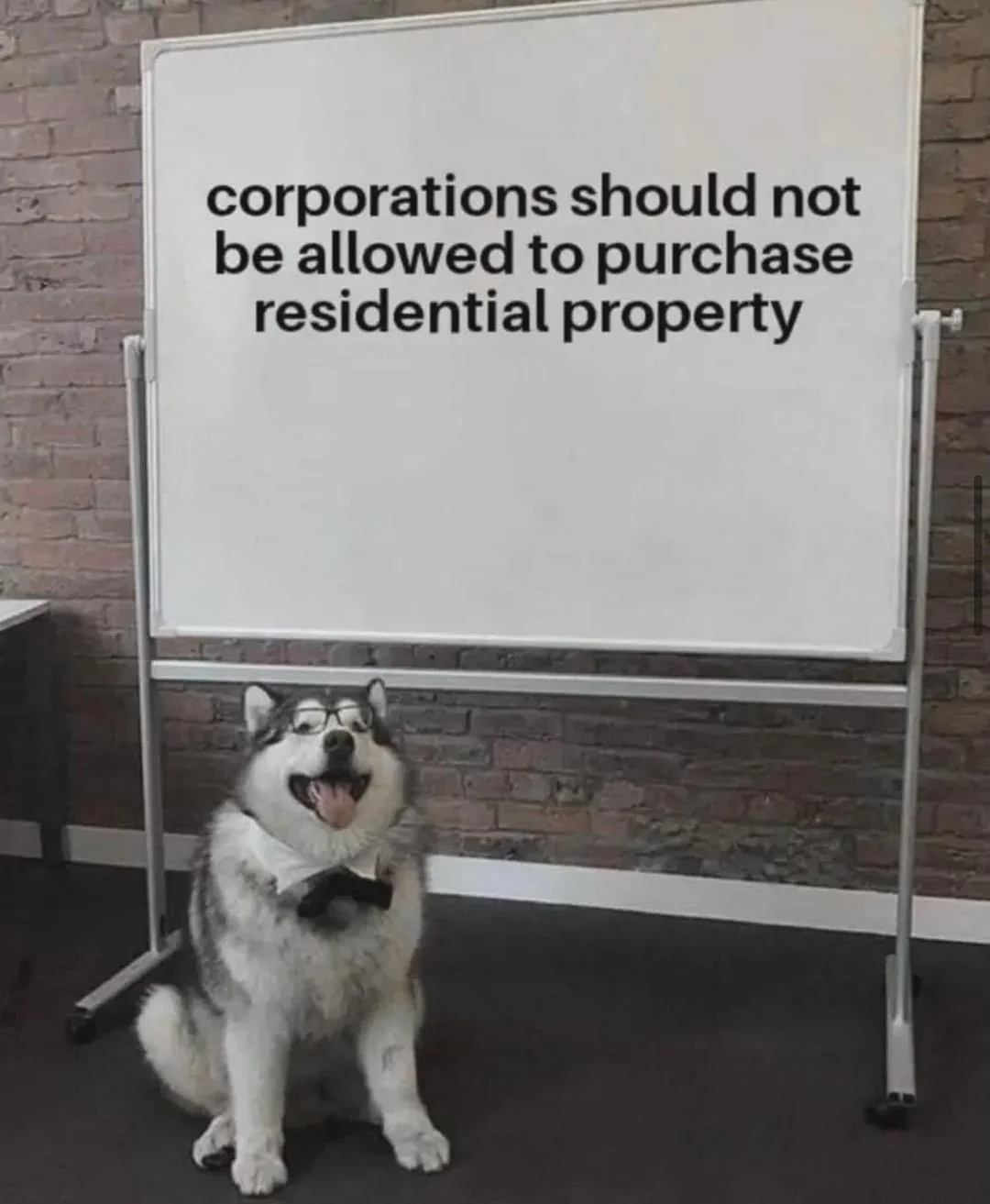no real estate taxes for the first house owned, heavy and progressive taxes starting on the second, is an idea
companies get called people all the time, i'm starting to believe it, but i still think they don't need shelter, so they shouldn't be able to aquire a basic human need
